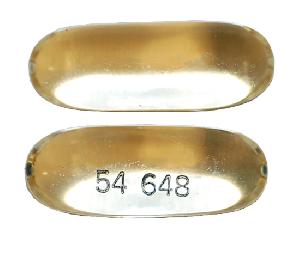Icosapent Interactions
There are 76 drugs known to interact with icosapent, along with 3 disease interactions. Of the total drug interactions, 76 are moderate.
- View all 76 medications that may interact with icosapent
- View icosapent disease interactions (3)
Most frequently checked interactions
View interaction reports for icosapent and the medicines listed below.
- Aspir 81 (aspirin)
- Aspirin Low Strength (aspirin)
- Benadryl (diphenhydramine)
- CoQ10 (ubiquinone)
- Crestor (rosuvastatin)
- Cymbalta (duloxetine)
- D3 (cholecalciferol)
- Eliquis (apixaban)
- Entresto (sacubitril / valsartan)
- Farxiga (dapagliflozin)
- Fish Oil (omega-3 polyunsaturated fatty acids)
- Flonase (fluticasone nasal)
- Jardiance (empagliflozin)
- Lipitor (atorvastatin)
- Metoprolol Succinate ER (metoprolol)
- Metoprolol Tartrate (metoprolol)
- Mounjaro (tirzepatide)
- Ozempic (semaglutide)
- Plavix (clopidogrel)
- Repatha (evolocumab)
- Singulair (montelukast)
- Synthroid (levothyroxine)
- Tresiba (insulin degludec)
- Trulicity (dulaglutide)
- Tylenol (acetaminophen)
- Vitamin B12 (cyanocobalamin)
- Vitamin C (ascorbic acid)
- Vitamin D2 (ergocalciferol)
- Vitamin D3 (cholecalciferol)
- Zyrtec (cetirizine)
Icosapent disease interactions
There are 3 disease interactions with icosapent which include:
More about icosapent
- icosapent consumer information
- Compare alternatives
- Reviews (125)
- Drug images
- Side effects
- Dosage information
- During pregnancy
- Drug class: miscellaneous antihyperlipidemic agents
- En español
Related treatment guides
Drug Interaction Classification
| Highly clinically significant. Avoid combinations; the risk of the interaction outweighs the benefit. | |
| Moderately clinically significant. Usually avoid combinations; use it only under special circumstances. | |
| Minimally clinically significant. Minimize risk; assess risk and consider an alternative drug, take steps to circumvent the interaction risk and/or institute a monitoring plan. | |
| No interaction information available. |
Further information
Always consult your healthcare provider to ensure the information displayed on this page applies to your personal circumstances.


